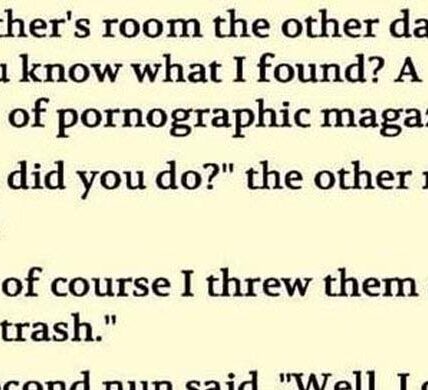Growing up, my dad lived by routine — same work shirt, same dented lunchbox, same tired jokes about deadlines and back pain. He always told us he was a mid-level manager at a parts distribution company, nothing special or exciting. We never questioned it. But on the day of his funeral, everything we thought we knew quietly shifted.
A man in a work uniform approached us and gently shook our hands. Then he said something that stunned us: “Your dad wasn’t a manager. He was the one who kept our entire facility running. When something broke, he fixed it. He saved our days more times than I can count.” For the first time, we learned who he truly was. He hadn’t been hiding a secret life — he’d been hiding the humble reality of a job he didn’t think was “impressive enough” for his family. He did the hardest work, stayed late to help others, solved problems no one else saw, and never once complained.
As more coworkers stepped forward, a new picture of my father took shape — one built on humility, quiet strength, and a work ethic that didn’t need a title. That night, we found his real work jacket tucked inside an old box. The pockets were dusty, the fabric worn thin. Inside was a small folded note in his handwriting: “Do good work. Leave things better than you found them. That’s enough.” It felt like a message meant not just for him, but for us.
I used to believe a legacy was built on awards, promotions, and accomplishments. But standing there holding his jacket, I understood how wrong I was. My dad’s legacy wasn’t defined by a job title — it was defined by kindness, consistency, and the people he helped without ever asking for credit. He showed me that dignity doesn’t come from what you’re called, but from who you choose to be. And that is a life worth honoring.Growing up, my dad lived by routine — same work shirt, same dented lunchbox, same tired jokes about deadlines and back pain. He always told us he was a mid-level manager at a parts distribution company, nothing special or exciting. We never questioned it. But on the day of his funeral, everything we thought we knew quietly shifted.
A man in a work uniform approached us and gently shook our hands. Then he said something that stunned us: “Your dad wasn’t a manager. He was the one who kept our entire facility running. When something broke, he fixed it. He saved our days more times than I can count.” For the first time, we learned who he truly was. He hadn’t been hiding a secret life — he’d been hiding the humble reality of a job he didn’t think was “impressive enough” for his family. He did the hardest work, stayed late to help others, solved problems no one else saw, and never once complained.
As more coworkers stepped forward, a new picture of my father took shape — one built on humility, quiet strength, and a work ethic that didn’t need a title. That night, we found his real work jacket tucked inside an old box. The pockets were dusty, the fabric worn thin. Inside was a small folded note in his handwriting: “Do good work. Leave things better than you found them. That’s enough.” It felt like a message meant not just for him, but for us.
I used to believe a legacy was built on awards, promotions, and accomplishments. But standing there holding his jacket, I understood how wrong I was. My dad’s legacy wasn’t defined by a job title — it was defined by kindness, consistency, and the people he helped without ever asking for credit. He showed me that dignity doesn’t come from what you’re called, but from who you choose to be. And that is a life worth honoring.



